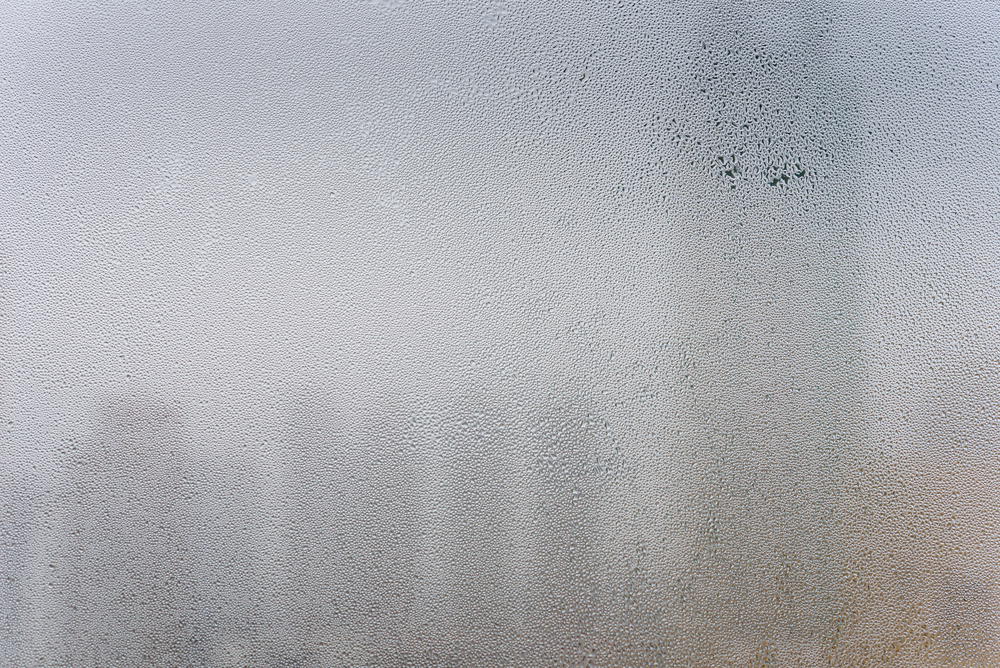How to Deal With Condensation on Windows
Increasing ventilation and maintaining low-level heating in your home can all help deal with condensation - but if you're getting moisture inside double-glazing panels, your window units may not be properly sealed.
Condensation inside your windows can be unsightly and make your view look blurry, which is more inconvenient than a health issue.
You may want to speak to a local window expert regarding whether you need new windows or now. Enter your details and notes below and we'll connect you with window experts in your area. Time to complete: 30 seconds.
However, longer-term, if left untreated, condensation in double-glazing can cause mould to form on the window and frame, so it's best dealt with before it poses a problem.
What Causes Condensation Inside Windows?
Most properties experience condensation because the temperature inside is far warmer than outside.
Where there is excess moisture in the home, the hotter air condenses on the cold glass and turns into droplets.
If you have condensation on the inner pane, it's a simple case of wiping it down or following some of the advice we've listed below.
Double or triple-glazing units with condensation in between the panes are a bit trickier to deal with and indicate that the window hasn't been correctly sealed, as it should be an airtight vacuum to provide proper insulation.
Window panes have a desiccant inside, which stops moisture from forming and keeps the inner layer free of water.
If this has become saturated, or the seal is broken, you will get condensation inside the window as a result.
Get quotes for new windows
See how we work below.
How to Deal With Condensation on Windows
There are a few things you can try that should reduce the moisture in the air and prevent or mitigate the condensation from forming on your windows:
- Opening windows and curtains reduces humidity, and if you open windows in your bathroom after a shower, that can also help. Leaving curtains and blinds open during the day boosts air circulation and helps condensation quickly disperse.
- Keep your heating on low - fluctuating temperatures as your heating kicks on and off can cause more condensation, so the better option is to keep your heating on most of the time but at a lower setting.
- Invest in a dehumidifier - these devices can remove excess water from the air. If you use a humidifier, it's best to turn it down or lower the settings until the condensation has stopped appearing.
Storing wood for log burners outside will also help since this introduces moisture.
Another tip is to pick up some house plants that love water (orchids and bromeliads are good examples) - these plants absorb moisture from the air like a natural dehumidifier.
If condensation is a recurring issue and is starting to cause signs of dampness or mould, you may wish to think about replacing single-glazed windows with double-glazing or replacing an older double-glazed unit.
Benefits of Treating Window Condensation Quickly
Moisture occurs naturally in our homes - think cooking, showers, washing up or laundry!
Properties without sufficient ventilation can easily become damp, and condensation on your windows is one of the first signs before you see any mould, spores or other impacts.
Opening your windows, using fans, drying laundry outside or using a dehumidifier can all reduce humidity levels and normally are enough to stop condensation if it's on the inside of your glass panels.
As we've discovered, condensation inside the window is harder to deal with since you can't access that part of the unit, so it's important to treat the problem fast before it develops further.
Window insulation kits are one shorter-term option if you can't replace your windows and can be installed on the inside of the windows as a way to seal the interior.
Checkout this video which talks you through a few different ways to address condensation on your windows:
Frequently Asked Questions
Let's answer some of the most common queries we receive about how to deal with condensation on windows.
Can I Remove Condensation From Inside Double-Glazing?
Double-glazing panels aren't accessible and should be fully sealed so condensation cannot form. If you see water droplets inside your windows, the unit may need to be repaired or replaced.
As a quick fix, you can try to use a hairdryer or a dehumidifier, but if the seal has been damaged, it'll need maintenance work to stop condensation from reappearing.
When Should I Worry About Condensation on My Windows?
Exterior condensation isn't usually anything to be concerned about - that means the outside glass is colder than the dew point, and the water will evaporate normally.
Condensation inside is more of a problem because, at best, excessive moisture can cause stuffy air, and at worst, can create water damage, peeling paint, warping and mould.
Long-term condensation issues can damage insulation, stain your walls and even lead to structural damage, so if you regularly see condensation, and improving air circulation doesn't help, it's probably time to contact a professional window fitter.
Do I Need New Windows If I Get Condensation Between the Panes?
Not necessarily - condensation inside a double-glazed unit normally indicates that the glass seal has failed, allowing water to collect inside.
In some cases, a window fitter can replace the frames or repair the seal, but in others might recommend the whole window be replaced.
Condensation everywhere in a room or home normally means that you need to focus on ventilation, but if you get water in specific windows, it's a sign that those frames aren't properly sealed.
Should I Wipe Condensation Away From the Inside of My Windows?
Yes, if you keep getting water on your windows, it's best to wipe it off straight away.
Prolonged water exposure can cause the seals to warp and become loose, which might then mean you get condensation on the inside of the glass as well as in your property's interior.
The best approach is to wipe your windows down each morning when humidity is worst because windows, doors and curtains are normally shut overnight.
Does Vinegar Stop Condensation From Forming on Windows?
Vinegar is one of those catch-all home solutions used for everything from stain removal to cleaning.
A homemade solution of washing up liquid and white vinegar is an effective way to clean window glass and remove condensation.
However, cleaning won't prevent condensation from coming back or treat the underlying cause.
Get quotes for new windows
See how we work below.


